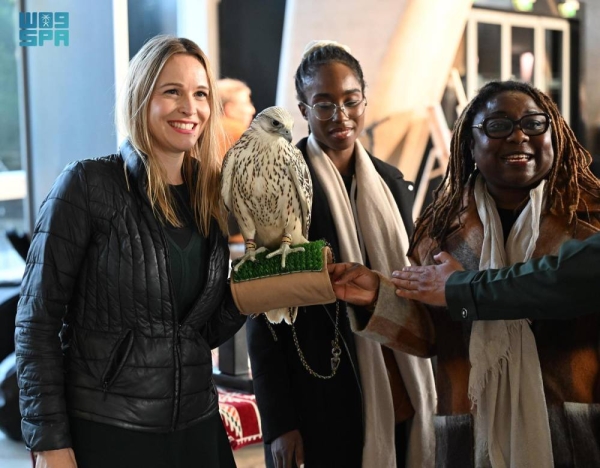The Arab Week at UNESCO in Paris, organized by the Arab Group at UNESCO, was inaugurated by Jordanian Ambassador Leena Al-Hadid and attended by Arab and international diplomats, UNESCO officials, and leaders. This event, the first of its kind in over fifty years, showcases the rich cultural heritage of the Arab world across various fields such as science, philosophy, literature, and arts. The Arab Group expressed their gratitude to Saudi Arabia and Minister of Culture Prince Badr bin Abdullah for their efforts in making this event possible.
During the Arab Week at UNESCO, 22 booths representing Arab countries are displaying their cultural heritage, history, and civilizations. Attendees have the opportunity to interact with the representatives, engage in cultural discussions, and strengthen cultural ties with participants from around the world. In addition to the booths, the event also features seven seminars covering topics such as language, calligraphy, Arabic literature, artificial intelligence, education and fine arts, intangible cultural heritage, and world heritage. These seminars aim to generate ambitious ideas based on deep research rooted in Arab experiences, heritage, civilization, and history.
The Arab Week at UNESCO provides a unique platform for Arab countries to showcase their cultural contributions and engage with a global audience. The event highlights the importance of cultural heritage in promoting cross-cultural understanding and cooperation. The participation of academic institutions, experts, and specialists from various fields underscores the significance of preserving and promoting Arab heritage for future generations. By creating a space for dialogue and collaboration, the Arab Week at UNESCO contributes to the enrichment and preservation of Arab culture.
The inaugural Arab Week at UNESCO marks a significant milestone in promoting Arab cultural heritage on the international stage. The event underscores the importance of acknowledging the contributions of the Arab world to science, philosophy, literature, and arts. By showcasing the diverse cultural heritage of Arab countries, the event aims to foster greater appreciation and understanding of Arab civilization. The participation of UNESCO officials, diplomats, and leaders reflects the global significance of Arab cultural heritage and the importance of preserving it for future generations.
The Arab Week at UNESCO serves as a platform for promoting cultural exchange and fostering dialogue between Arab countries and the international community. By bringing together representatives from various fields, the event facilitates knowledge-sharing and collaboration on cultural preservation and promotion. The engagement of attendees with the booths and seminars underscores the value of cultural diplomacy in building bridges between nations and enhancing mutual respect and understanding. The success of the event demonstrates the potential for future collaborations in showcasing Arab cultural heritage on the global stage.
Overall, the Arab Week at UNESCO in Paris celebrates the rich cultural heritage of Arab countries and promotes the importance of preserving and promoting Arab civilization. The event provides a valuable opportunity for dialogue, collaboration, and cultural exchange among participants from around the world. Through showcasing the contributions of the Arab world to science, philosophy, literature, and arts, the Arab Week at UNESCO highlights the enduring legacy of Arab culture and its significance in the global context.











